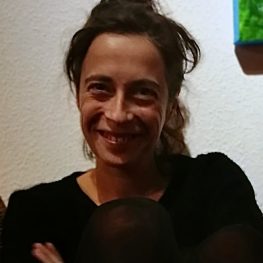Start
27 October 2020 - 12 h 30 min
End
27 October 2020 - 14 h 00 min
Address
Online (Microsoft Teams) View mapCategories
Departement SeminarDo the Advantaged Support (Non-)Normative Protest by the Disadvantaged? The Means Must Fit the Circumstances
Dr. Cátia P. Teixeira, Department of Psychology, University of Groningen, the Netherlands
Co-authors: Russell Spears (University of Groningen), Aarti Iyer (University of Sheffield), & Colin Wayne Leach (Columbia University).
Abstract. Disadvantaged groups use different means to protest against inequality. Normative protest is more likely when inequality reduction is seen as possible, whereas non-normative protest is more likely to occur when scope for inequality reduction is low and the status quo is thus difficult to change. However, little is known about how scope for inequality reduction shapes advantaged groups’ reactions to (normative vs. non-normative) protest. This is a key question for understanding the dynamics of social change as advantaged groups are: 1) more likely to have power and resources to enact social change; 2) arguably also the ones most likely to resist it.
In 3 experiments (N=558) we tested a “fit” hypothesis between scope for inequality reduction (high vs. low) and type of protest (normative vs. non-normative) among members of advantaged groups. Besides directly manipulating scope for inequality reduction, we conceptually replicated these results using two of its main socio-structural proxies: status stability and permeability of intergroup boundaries. Results showed that less invested group members were more supportive of collective protest when the circumstances of inequality justified the means of protest, that is, normative protest when scope for inequality reduction was high and non-normative protest when scope for inequality reduction was low. Highly self-invested individuals were unaffected by the form of protest or scope for inequality reduction. Results suggest that those less committed to their advantaged position assess acceptability of protest in line the context that might justify it. Even non-normative protest, normally seen as extreme and illegitimate, can be normatively acceptable when circumstances call for this less typical form of action.


